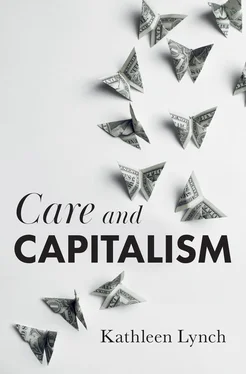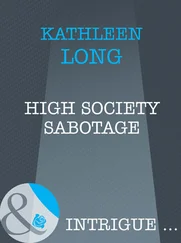The Forbes list of the world’s richest people in 2019 showed that almost 90 per cent of the world’s billionaire elite were men. 9Although there are now more women billionaires than twenty years ago, they are still a small minority. Most of those who own and control the transnational corporations globally are not only men but also White (Patterson 2013). Though there are local billionaires in several countries, the transnational capitalist class who both own and control much of capital globally form a hegemonic fraction (Poulantzas 1975) and are in an extremely powerful position to become a global ruling class given their dominance of so many fields of production and services, including financial services (Robinson 2012; Murray 2015).
As wealthy men (and the few women), and their professional allies in the financial, investment, accounting and legal professions (Sklair 2000), move globally, organizing takeovers and forming alliances, new business and allegiances, they are above and beyond the control of most nation states (de Graaff 2020). They are unlikely to renege on their power and wealth without a struggle; indeed, they have developed a sense of entitlement to that power and strongly contest its erosion in both gender and racial terms ((Kimmel 2013; Anderson 2016).
The material dividend of patriarchy
To understand how capitalism works, we need to go beyond capitalism and explore how it is constitutionally linked to the racial, gender and care ordering of society. The internal dynamics of gender itself are far from binary (Mitchell 1971). While patriarchy is a hierarchical system within which men dominate and control women, it is also a relationship between men . Men are hierarchically constituted within capitalism by class and co-constituted hierarchically by sexuality and race especially (Connell 1995). While hybrid types of masculinities exist, the White, upper-class, heterosexual male is symbolically at the pinnacle of the masculinities’ hierarchy. Men who are poor, working-class, Black or Brown, and/or gay or transsexual are variously located at the nether end of the male hierarchical order.
While some men find new ways to elevate themselves above other men, they often do so in a manner that does not threaten the symbolic boundaries that maintain the patriarchal dividend of their own kind. It is quite common for well-educated White middle-class men to differentiate themselves from ‘traditional’ men by highlighting their gender-aware ideologies, tastes and behaviours, while simultaneously retaining and protecting their male power in the gender hierarchy (Bridges and Pascoe 2014; Eisen and Yamashita 2019). As Hondagneu-Sotelo and Messner (1994) observed, White middle-class men want to stop paying a price for being at the pinnacle of the gender hierarchy (including the disrespect and criticism that comes from being defined as part of the privileged, undeserving elite) while at the same time wanting to remain part of that elite. As with all groups who benefit from privileges, they do not want to lose the material benefits of their superior (gender) status.
Although the vast majority of men do not belong to a normatively prescribed hegemonic group of (White) upper-class males, they benefit from the patriarchal dividend of being part of the male social group per se (Connell 1995: 79). They do not have to be proactive to benefit from the patriarchal dividend, nor do they have to defend it. Just as White people benefit silently from the racial dividend of whiteness, so all men can benefit from the patriarchal dividend of being a man, if they remain passive and silently complicit with its injunctions (Hartmann 1979; Connell 1995). Men’s complicity with the unequal gender order is highly visible in the care field and within families.
The gender order of caring in families
While the heterosexual household is a contested family formation, it remains the modal form of family organization. Within all types of families, there is an internal economy within and through which household goods and services are produced: food is prepared and cooked, floors are cleaned, toilets are washed, family events are organized and so forth (Folbre 1994). The relations of production, consumption and the transmission of goods within families operate by different rules of exchange from market production; they are differentiated by age and marital status, and especially by gender, where heterosexual couples are involved (Delphy and Leonard 1992). While there have been changes since the early 1980s, and men now do more childcare and more housework than several decades ago, on average, US data show that wives do 1.7 times the housework of husbands, while married mothers average 1.9 times as much housework as married fathers (Bianchi, Sayer, Milkie and Robinson 2012). Although there are changes in the amount of time men spend in certain areas of childcare when both partners are employed full time, notwithstanding this, a US study spanning the years 2003–7, involving over 13,000 women and men, found mothers’ time in childcare always exceeded fathers’ time, although the gender gap is narrower in dual-earner families (Raley, Bianchi and Wang 2012: 1440). 10The pattern is similar across Europe and nearby countries; while women do much more care work and housework in Greece and Turkey than in Sweden and Norway, the gender disparities remain even within these. 11Even in the Nordic countries (Sweden, Norway, Finland, Denmark and Iceland), where there are enhanced childcare supports and extensive paid parental leave for both parents, men remain reluctant to take the full leave available, and where the leave can be shared between mothers and fathers, mothers are far more likely to take it (Cederström 2019). Undertaking hands-on primary caring is not central to men’s identity as men (Hanlon 2012). The gendered male order impacts on men, even in the more gender-egalitarian Nordic states, with men fearing that their managers and co-workers might judge them adversely if they took longer and more optional care leave; they fear they would suffer career penalties (Cederström 2019: 40).
The unequal gender division of both domestic and care labour benefits men individually (Connell 1995: 67–86), as women’s unwaged care and domestic labour frees men up to take public power in an hierarchically ordered economy and society. Men can use their power relative to their class and racial position in ways that involve exercising control over women (Badgett and Folbre 1999; Folbre 2012). The unequal division of care and domestic labour also impoverishes women, especially working-class and poor women, not only in the present but in future time, particularly in old age, due to their lack of economic independence and pension entitlements (Oxfam 2020).
Without recognizing the unique and highly unequal gendered dynamics of household economies, work organizations and the state itself, and the materialist gains that ensue for men of all classes from these, there is misrecognition of the interests of men, qua men , in upholding a capitalist system from which they are net beneficiaries relative to women of their class.
While patriarchy has long historical roots predating capitalism, capitalism has reinforced, legitimated and consolidated a value order in which there is a deep disassociation of value between female-dominated caring labour and market labour. Neoliberal-led globalization has exacerbated that value divide by making the chains of connectedness invisible. It has widened the physical and mental distances between provisioning and consumption, as most are ignorant of the exploitations and abuses that often underpin the food they eat, the clothes they wear or the phones and laptops they use to communicate (Federici 2019: 109–10). The foundational work that is required to care for the Earth, prevent suffering and produce humanity itself in non-exploitative relations is unnamed and unspoken (Mies and Bennholdt-Thomsen 2000; Federici 2019).
Читать дальше












